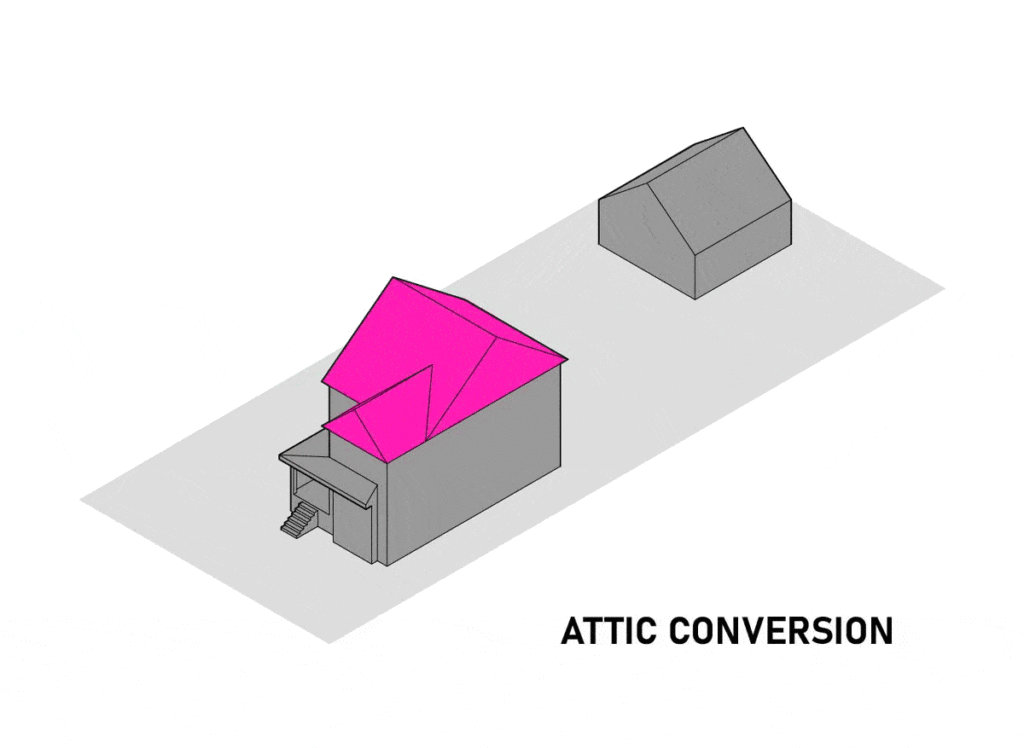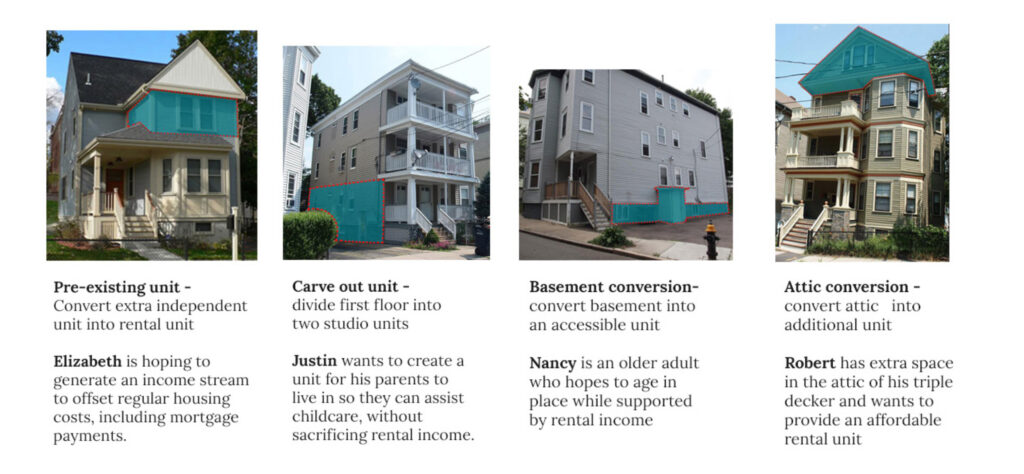By funkhaus
When it comes to alternative paths toward more widely available affordable housing and wealth building for families in the greater Boston area, ADUs, or accessory dwelling units, are a way forward that we at Studio Luz find important to explore. These self-contained residential units share a single-family lot with a larger primary residence, and range from detached structures like converted garages to basement or attic dwellings. ADUs are conducive to multi-generational housing situations, enabling homeowners to provide housing to their grandparents, parents, children, grandchildren, or other family members. They can also offer young, new homeowners a more affordable option when they decide to rent or buy their first home.

Courtesy of Studio Luz Architects
For families who have experienced barriers to intergenerational wealth building in other areas, like historical lack of access to homeownership and underbanking, an ADU can be an avenue to building their wealth. Though building an ADU on a property does require an initial investment, these units can contribute to wealth building in multiple ways, starting with increasing the value of the property on which the unit sits. A 2021 Porch survey showed that properties with ADUs for sale in the United States were priced 35% higher than units without one. This increased resale value often makes the investment into an ADU worth it for many homeowners. Alternatively, an ADU can build wealth by providing a stream of income. If rented to a tenant, that passive income can help a family cover expenses, like a mortgage, or allow for them to save their assets. Even if the ADU is reserved for a family member, like an aging parent, this still can contribute to financial security — since the family can avoid the costs associated with assisted living, they are able to both save their money and enjoy more time with their family member.
ADUs are gaining in popularity throughout the country, and the City of Boston has made efforts in recent years to expand ADU access to residents and to streamline the process for homeowners who want an additional unit on their property. Through the city’s ADU Pilot Program, Boston residents can determine their eligibility for a unit, learn about ADU design requirements, apply for permits, and access loans to build approved designs.

City of Boston's ADU Pilot Program details real-life examples of various unit types.
These resources are invaluable, but it’s essential to also consider how we can prevent displacement due to the high cost of housing in the city and work towards greater equity across communities in this area. Since starting costs for these units are often expensive, Boston’s ADU loans provide opportunities for local families who otherwise would not have the resources to participate in this method of wealth building. Additionally municipalities like Provincetown have in recent years passed zoning laws allowing ADUs by right, which reduces the number of obstacles that residents face while trying to obtain a permit to build a unit. Following the lead of states like California to pass by right legislation statewide, a similar bill was introduced to the Massachusetts legislature in early 2022.
Though ADUs alone aren’t enough to solve the issue of wealth inequality or to completely bridge the economic gap that stems from high demand and low supply of affordable housing, their proliferation, supported by municipal investment, can push the needle in the right direction. As an organization that values innovation in approaching municipal challenges as well as advocating for our communities, Studio Luz sees the opportunity that ADUs offer for building stronger, more financially secure, and more equitable communities.